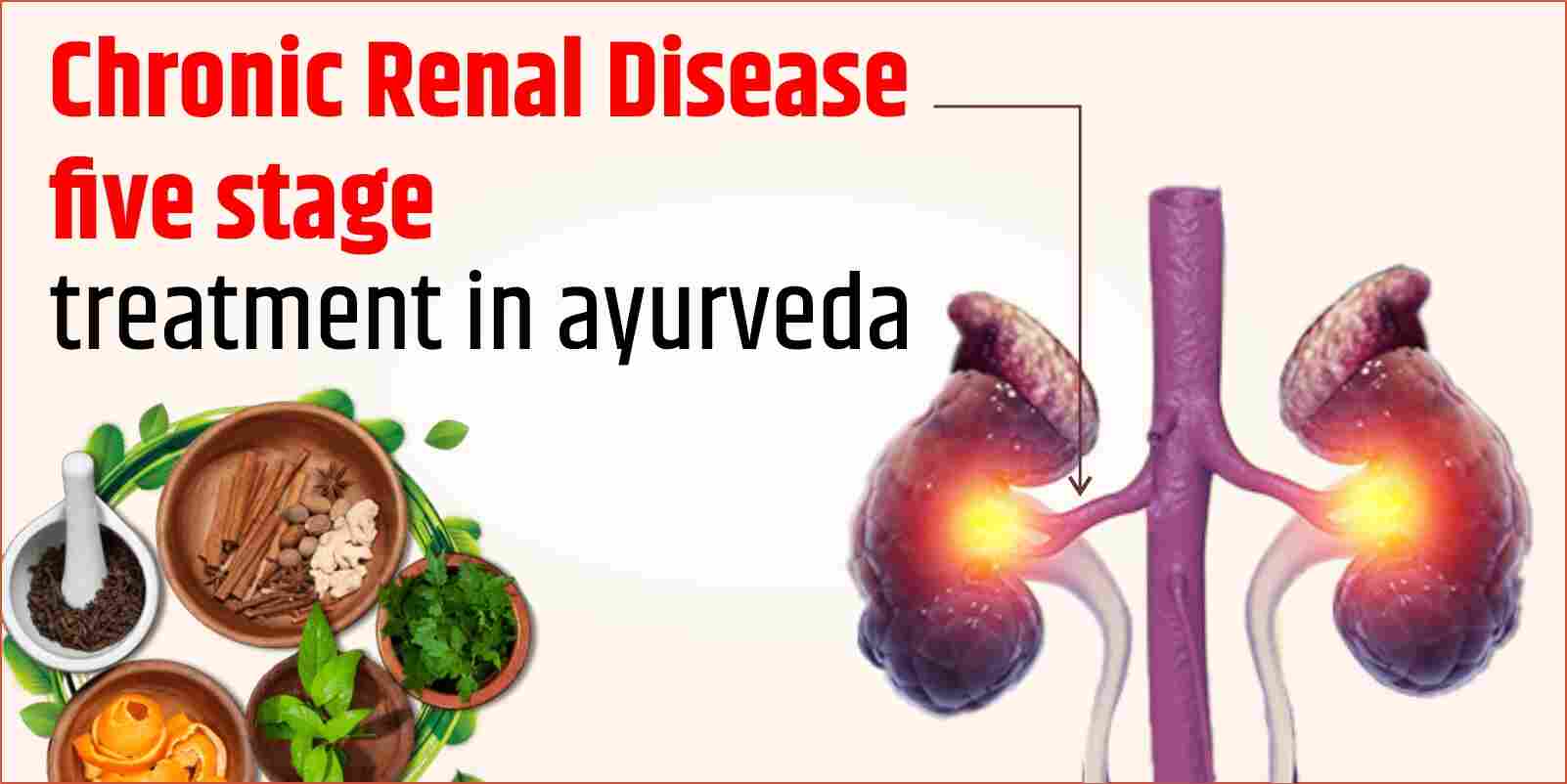
Chronic Kidney Disease (CKD), also known as chronic renal disease, is a type of kidney disease that is defined by the gradual loss of kidney function over time. It happens in five steps, with mild damage in Stage 1 to total kidney failure in Stage 5. Modern science provides treatments such as dialysis and transplantation, and the ancient Indian system of healing, Ayurvedic treatment for chronic renal failure, also offers a holistic way to manage CKD. Ayurveda can support conventional care by focusing on balancing the body’s energies, improving kidney function, and addressing root causes. If you are new to Ayurveda, we can explore how Ayurveda treats the five stages of CKD in a gentle, supportive manner.
Before we take a look at the chronic renal disease 5 stage treatment in Ayurveda, understanding this disease through the lens of Ayurveda will help you understand the specifics better. To best address stage-specific treatments, it is beneficial to understand CKD as per Ayurveda. In Ayurveda, kidney problems are commonly associated with the imbalance of the doshas (i.e., Vata, Pitta, and Kapha) and the accumulation of toxins (ama) in the body caused by improper digestion or lifestyle. This adversely affects the kidneys, part of the Mutravaha Srotas (urinary system), with these imbalances damaging their filtration and waste-elimination functions. CKD 5 stage treatment in Ayurveda focuses on restoring balance, detoxifying the body, and strengthening the kidneys through herbs, diet, lifestyle adjustments, and therapeutic measures such as Panchakarma.
As kidney damage and symptoms are different at each stage of CKD, it is essential to create a treatment plan that is specific to that stage. I’ll break down how chronic renal disease treatment in Ayurveda can help at each of these stages below, and I’ll keep things practical and grounded to make it feel more approachable.
Stage 1: The glomerular filtration rate is close enough to normal (90 or above) that the damage in the kidneys is minimal. The symptoms may be mild or nonexistent, but this is the time to treat them. Preventing, strengthening, and halting progression are where Ayurveda comes in.
At this stage, the goal is to maintain kidney health and prevent further damage. Regular check-ups with your doctor, alongside these Ayurvedic practices, can keep things stable.
Stage 2 shows a slight decline in GFR (60–89), and symptoms like fatigue or mild swelling may appear. Ayurveda steps up detoxification while continuing to strengthen the kidneys.
Consistency is crucial here. Combining these practices with medical monitoring can slow disease progression and keep symptoms in check.
Stage 3 (GFR 30–59) is split into 3A and 3B, with more noticeable symptoms like swelling, high blood pressure, or anemia. Ayurveda intensifies efforts to detoxify, manage symptoms, and protect kidney function.
You must continue to work closely with your healthcare provider, as Stage 3 is a critical juncture where proactive care can postpone going into dialysis.
In Stage 4 (GFR 15–29), symptoms such as fatigue, itching, and fluid retention intensify, and dialysis may be looming. Ayurveda treats for symptom relief, to slow progression, and overall health support.
At this stage, the chronic renal disease 5 stage treatment in Ayurveda is about quality of life. Work with your nephrologist to ensure treatments follow your medical plan.
GFR stage 5 (less than 15) is end-stage renal disease, typically needing dialysis or transplant. Ayurveda acts in a supportive capacity via symptom management, detoxification, and emotional balance.
Ayurveda will not substitute for dialysis or transplant but does have the potential to enhance comfort and resilience. Note: Always check with your healthcare team before starting any new treatments.
Ayurveda is powerful, but it’s not a one-size-fits-all. CKD is a major medical problem, and treatments should be customized by a certified Ayurvedic physician who knows your health background. Certain herbs may interact with medications or be harmful in advanced stages, so you should never self-medicate. Blood tests and meetings with your nephrologist are essential to monitor your progression and adjust your plan.
Karma Ayurveda is the leading Ayurvedic hospital in the country with multiple branches all over the country. Led superbly by Dr. Puneet Dhawan, the leading Ayurvedic expert, the hospital has helped millions of patients overcome their health disorders. The hospital also offers chronic renal disease 5 stage treatment in Ayurveda. Contact the nearest branch to learn more.
Conclusion
Because it can be so overwhelming to live with CKD, there is no panic about CKD, but an action that can assist you in managing your condition holistically with this powerful medicine. These practices range from herbs and diet to lifestyle changes and therapies, and they intend to restore balance in the body and slow the progression of disease. Start small, with a cup of barley water, say, or a few minutes of deep breathing, and expand from there. With the right patience, wisdom, guidance from practitioners, and teamwork with your treating doctor, it would be wise to work with Ayurveda in CKD as an approach.

Certificate no- AH-2023-0186
JAN 05,2023-JAN 04,2026
"Ayurveda is not just a system of medicine; it's a way of life. Connect with us to embrace a lifestyle that nurtures your body, mind, and soul."
Book Consultation Now